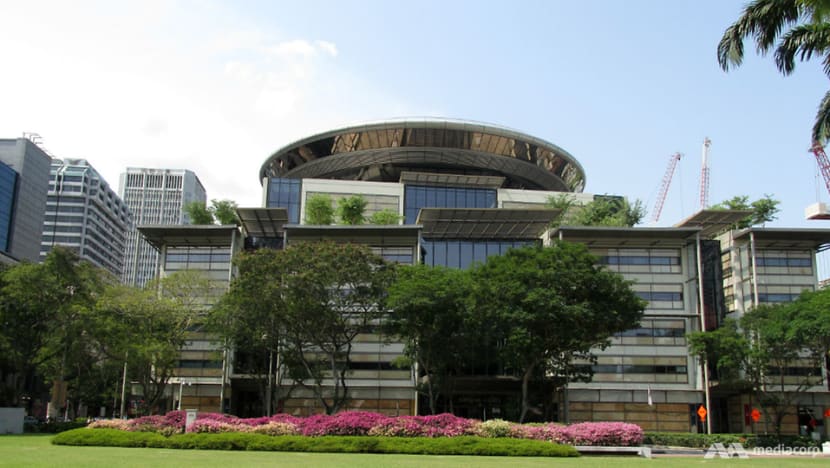Nigerian spared death sentence after Court of Appeal acquits him of importing drugs into Singapore

File photo of the Supreme Court which is made up of the Court of Appeal and the High Court.
SINGAPORE: A Nigerian man facing the gallows for importing drugs into Singapore eight years ago was spared death on Monday (May 27) after the Court of Appeal acquitted him of his capital charge.
Three judges found that the prosecution had failed to establish that Adili Chibuike Ejike knew that there were drugs in his suitcase when he entered Singapore on Nov 13, 2011.
Adili was 28 when he was caught with two packets wrapped in tape in his suitcase at Changi Airport Terminal 3. He had arrived in Singapore from Lagos, Nigeria via Doha, Qatar.
The two packets were identified after his suitcase was placed through an X-ray machine. During the scan, an image of darker density was seen on one side of the case.
A physical search yielded nothing incriminating, but the case was taken to the Immigration and Checkpoints Authority Baggage Office where the packets were found hidden under the inner lining of the suitcase.
The contents of the packets were found to be methamphetamine, also known as Ice. Adili was arrested and in June 2016 convicted of importing 1.961kg of meth under the Misuse of Drugs Act.
He was sentenced to death about a year later by trial judge Kan Ting Chiu, but appealed against his conviction and sentence.
According to court documents, Adili had been jobless in Nigeria after his business failed. He approached an acquaintance in Nigeria for help and that person agreed to give Adili a sum of money if he delivered a suitcase to an unspecified person in Singapore.
Adili then applied for his first passport in 2011 and travelled to Singapore with the suitcase, which was handed to him by a childhood friend who had been working with the acquaintance.
During the trial, Adili had maintained that he did not know that the meth bundles were in his suitcase. In one of his statements, he had said: "Somebody gave those substance [sic] to me. I did not know what it was. If I knew what they were, I would not have accepted to carry those things."
However, the trial judge had rejected his evidence, finding Adili to be an unreliable witness as there were several inconsistencies between his oral testimony and investigation statements.
COURT OF APPEAL LAYS OUT THREE REQUIRED ELEMENTS
Chief Justice Sundaresh Menon, along with Appeal Judges Andrew Phang and Judith Prakash, said in their decision that three elements had to be proven for the offence of importation.
First, Adili must have been in possession of the drugs. Second, he must have had knowledge of the nature of the drugs, and third, the drugs must have been brought intentionally into Singapore without prior authorisation.
The central issue was whether Adili was in possession of the meth, said the court. The element of possession required not just proof of physical possession, but also an element of knowledge.
A person who is not aware that an item - which turns out to be a controlled drug - is in his possession cannot be said, in a legal sense, to be in possession of that item, the court found.
The court found that Adili had not been wilfully blind to the existence of the drugs in his suitcase. This was because it would not have been possible for Adili to have discovered the drug bundles, which were discovered only after the inner lining of the suitcase was cut open.
He also could not have found out about the drugs by asking the people who had handed him the suitcase in Nigeria, since they were intent on keeping the truth from him, and would not have told him about the hidden drug bundles even if he had asked, said the judges.
Adili, who was represented by lawyer Mohamed Muzzamil Mohamed, cried in court after he was acquitted.
Chief Justice Menon said the appeal highlights "how important it is that the prosecution and the defence (and, indeed, the courts) remain alert to the precise effect and implications of conceding particular facts as to what the accused person did or did not know".
"We appreciate that this is by no means an easy and straightforward matter, and, in fairness to the judge, he was not helped in the discharge of this difficult task by the fact that the defence misunderstood the requirements of the element of possession and therefore wrongly conceded the fact of possession; while the prosecution proceeded on the basis that the appellant did not actually know of the existence of the drugs, before then seeking to have that very fact presumed to be true," he said.
"Had the parties properly set out their respective cases at the trial below, it would have been clear that what was in issue was the fact of possession, and that given the prosecution’s concession that the appellant did not actually know of that fact, that fact could only be established by proof beyond reasonable doubt that the appellant had been wilfully blind to the existence of the drugs."














